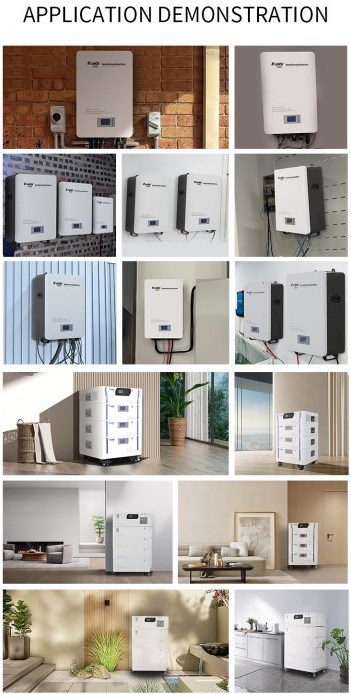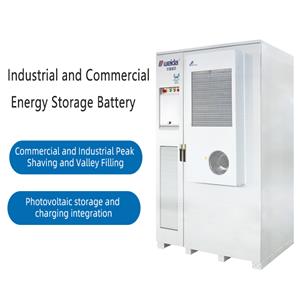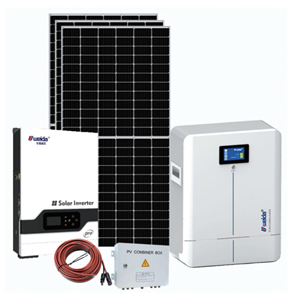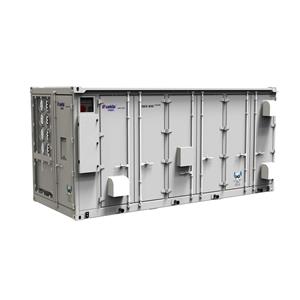Best-solar-cells-for-october-2023
Storing excess solar energy can help reduce your electricity bill and make you more self-sufficient.
Solar cells convert sunlight into electricity, but the amount of electricity generated by solar cells is affected by weather conditions and cannot be generated at night or on cloudy days.
If you are able to store excess solar energy, you can use it at night or on cloudy days, thus reducing your electricity bill.
Storing excess solar energy can provide the following benefits:
Reduced electricity bills: Using stored solar energy at night or on cloudy days can reduce electricity bills.
Increase self-sufficiency: storing excess solar energy allows you to use electricity even when the grid goes down.
Reduce dependence on fossil fuels: Using solar power to generate electricity reduces your dependence on fossil fuels, which in turn reduces environmental pollution.
If you are considering installing solar batteries, consider installing energy storage at the same time to make the most of solar energy.
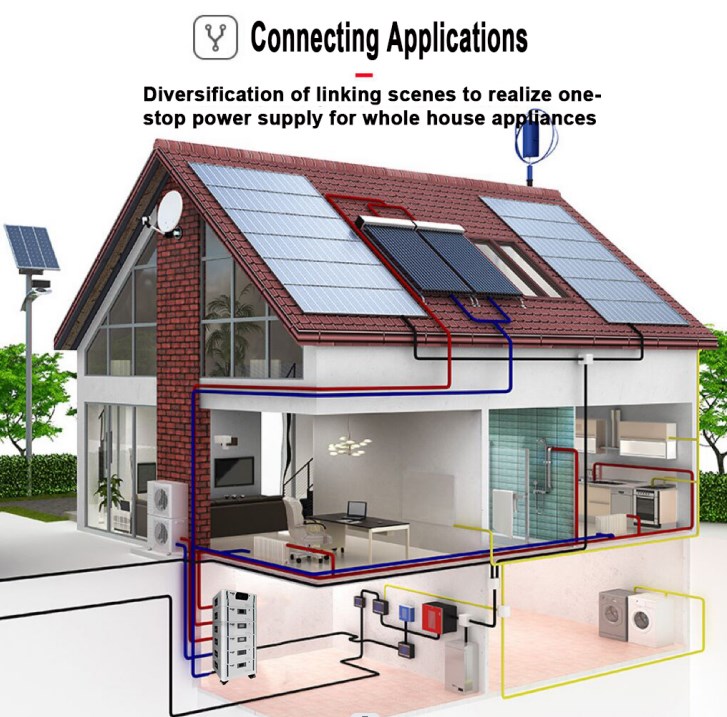
How to choose the best solar battery?
First, it's important to point out that not every solar cell is right for every home.
Solar energy is a very specific and individualized decision-making process, so without an on-site consultation, it can be difficult to determine exactly which solar battery is the "best" battery for your home's energy needs.
There are several factors to consider when choosing a solar cell:
Efficiency: Efficiency is one of the most important metrics of a solar cell, and it indicates the percentage of sunlight that a solar cell converts into electricity. The higher the efficiency, the more power the solar cell can generate.
Power: Power is the power generation capacity of solar cells, which indicates the amount of electricity that solar cells can emit per unit of time. The higher the power, the greater the demand for electricity that the solar cell can meet.
Price: Price is one of the important factors of solar cells and you need to choose the right solar cell according to your budget.
Lifespan: Lifespan is one of the important factors of solar cells and you need to choose the right solar cell according to your needs.
Other factors: you also need to consider the size, weight, appearance, and mounting method of the solar cell.
Here are some specific suggestions for selection:
For home electricity, you can choose solar cells with high efficiency and moderate power.
For commercial electricity, you can choose solar cells with high efficiency, high power and long life.
For outdoor electricity, you can choose solar cells with good weather resistance.
When purchasing solar cells, it is recommended that you choose products made by regular manufacturers and pay attention to checking the product's quality guarantee and warranty period.
Which type of battery is best for residential solar panel systems?
Currently, the two most commonly used battery types for residential solar panel systems are lead-acid batteries and lithium-ion batteries.
Lead Acid Batteries Lead acid batteries are the traditional battery for solar panel systems, offering advantages such as low cost and long life.
However, lead-acid batteries have a lower energy density, meaning that the same volume of lead-acid batteries can store less energy than lithium-ion batteries.
In addition, lead-acid batteries produce gas during the charging and discharging process and require regular maintenance.
Lithium-ion batteries are solar panel system batteries that have emerged in recent years and offer the advantages of high energy density, long life, and no maintenance. However, lithium-ion batteries are more costly.
Which type of battery is best for residential solar panel systems depends on several factors:
Budget: lead-acid batteries cost less, while lithium-ion batteries cost more.
System size: For smaller systems, lead-acid batteries may be a good choice. For larger systems, lithium-ion batteries may be more cost-effective.
Usage: If you need to store large amounts of power, lithium-ion batteries may be a better choice.
Climate: Lead-acid batteries perform poorly in cold climates.
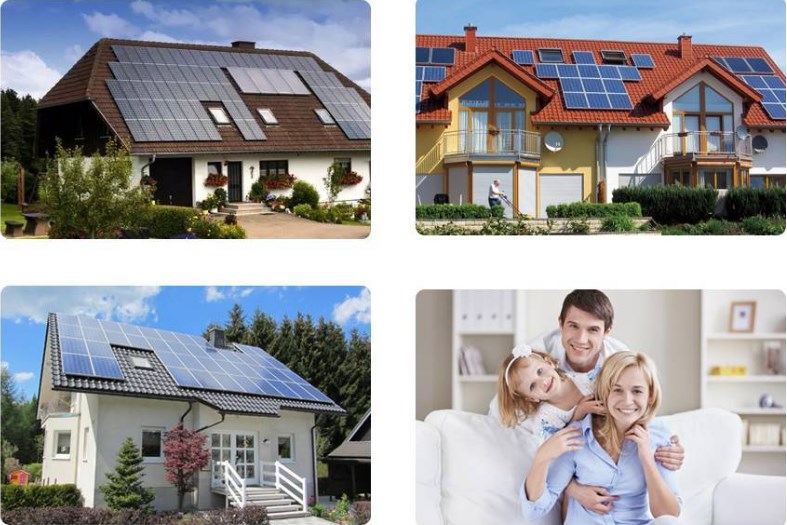
Taking the above factors into consideration, here are some suggestions:
Limited budget: Lead-acid batteries are a good choice.
Smaller system size: Lead-acid batteries may be a good choice.
Need to store large amounts of power: Lithium-ion batteries are a better choice.
Live in a cold climate: lithium-ion batteries are a better choice.
Europe's Energy CrisisSolar energy has been installed a lot, and the energy storage battery market offers new opportunities. Energy storage batteries will play a more important role in Europe as the demand for renewable energy continues to grow.
The popularity of solar batteries is increasing, but solar batteries are affected by weather conditions and are unable to generate electricity at night or on cloudy days. Energy storage batteries can store excess solar energy and use it at night or on cloudy days, thus increasing the utilization of solar cells.
Below are some specific applications of energy storage batteries in the European energy crisis:
Homes and businesses: Energy storage batteries can provide power to homes and businesses, reducing reliance on the grid.
Grid: Energy storage batteries can be combined with solar cells to improve grid flexibility and reliability.
Industrial: Energy storage batteries can provide power to industrial companies and reduce carbon emissions.
European governments are taking steps to promote the popularization of energy storage batteries. For example, the EU plans to increase the capacity of energy storage batteries to 120GWh by 2030. as European support for energy storage batteries continues to increase, the application of energy storage batteries in Europe will become more widespread.
The EU plans to increase the share of solar power generation to 40% by 2030.
The following are some of the measures taken by European governments:
Subsidies and incentives: European governments have provided subsidies and incentives for energy storage batteries to promote their popularity.
Policy support: European governments have introduced relevant policies for the development of energy storage batteries.
Infrastructure development: European governments are investing in infrastructure related to energy storage batteries to meet the growing demand.
Energy storage batteries have an important role to play in the European energy crisis. With the growing demand for renewable energy in Europe, energy storage batteries will play a more important role in Europe.
Here are some specific opportunities in the European energy storage battery market:
Home and business energy storage: as solar batteries become more popular, the demand for energy storage batteries in homes and businesses will continue to grow.
Grid energy storage: as the proportion of renewable energy sources continues to increase, the demand for energy storage batteries in the grid will grow.
Industrial energy storage: as the demand for renewable energy from industrial companies continues to grow, the demand for energy storage batteries from industrial companies will continue to grow.
These opportunities offer great growth potential for energy storage battery companies.
The following are the main countries in Europe that need solar batteries the most today:
Germany: Germany is Europe's largest solar market, solar power generation accounted for more than 20%. The German government provides a large number of subsidies and incentives for solar power, which promotes the popularity of solar cells.
Spain: Spain is the second largest solar market in Europe, with solar power accounting for more than 10% of the total. Spain is rich in solar energy resources and abundant sunshine, which provides good conditions for solar power generation.
Italy: Italy is the third largest solar market in Europe, with solar power generation accounting for more than 7%. The Italian government also provides a large number of subsidies and incentives for solar power generation.
France: France is the fourth largest solar market in Europe, accounting for more than 6% of solar power generation. The French government plans to increase the share of solar power to 18% by 2030.
Netherlands: The Netherlands is the fifth largest solar market in Europe, with solar power accounting for more than 5% of the total. The Netherlands is also very rich in solar energy resources, with plenty of sunshine.
